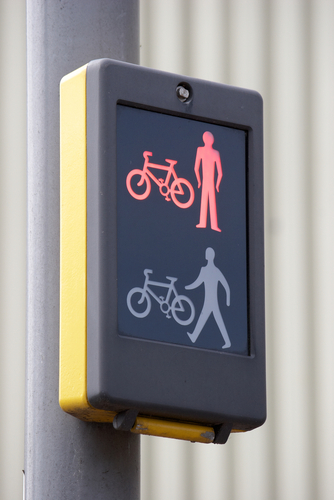Electric cars are great. They’re unbeatable with gas mileage, saving the owner time and money, and most people feel they’re better for the environment. But all the benefits pale in comparison to the one major drawback of electric cars — they can kill.
Battery-powered cars are quiet — too quiet some argue. Pedestrians cannot hear the cars approaching, something that the visually impaired rely on. The issue was serious enough for the National Highway Traffic Safety Administration (NHTSA) to issue a report on the matter, which found that hybrid electric vehicles “have a higher incidence rate of pedestrian and bicyclist crashes than do ICE [internal combustion engine] vehicles in certain vehicle maneuvers.” A recent New York Times review of the electric Ford Focus calls it “Deep-space silent, the quietest of the many electric cars I’ve driven.” That’s a problem.
A silent car puts pedestrians, cyclists and the National Federation of the Blind in an uproar, as it should.
buy prednisone online https://galenapharm.com/pharmacy/prednisone.html no prescription
To help solve this issue, the Pedestrian Safety Act of 2010 was enacted, forcing the NHTSA to initiate a rule-making process for minimal vehicle noise. That’s fine going forward, but what about the fleet of quiet, electric cars already on the road? They could be considered to have a fatal flaw. And what if car companies are reluctant to manufacture cars with such a feature?
The response of the industry was clumsy. Many, including Honda and high-end manufacturer Tesla Motors, doggedly continued to manufacture hybrid and electric cars that ignored the issue. One motive for Tesla becomes apparent when you read their 2011 SEC filings: The safety feature “could negatively impact consumer interest in our vehicles.
buy champix online https://ozgurmd.com/wp-content/uploads/2023/10/jpg/champix.html no prescription pharmacy” Nissan Leafs made a half-hearted effort by installing a grating boop-beep sound—but featured a mute button, something the new law wouldn’t allow. Toyota and Hyundai have been more proactive: This 2010 Japanese video shows Toyota tinkering with the Jetsons-style sound that is now standard on 2012 Priuses.
Car manufactures have no other option than to see this as a critical issue. If they don’t, it represents a serious failure of risk management. And those are never cheap.

